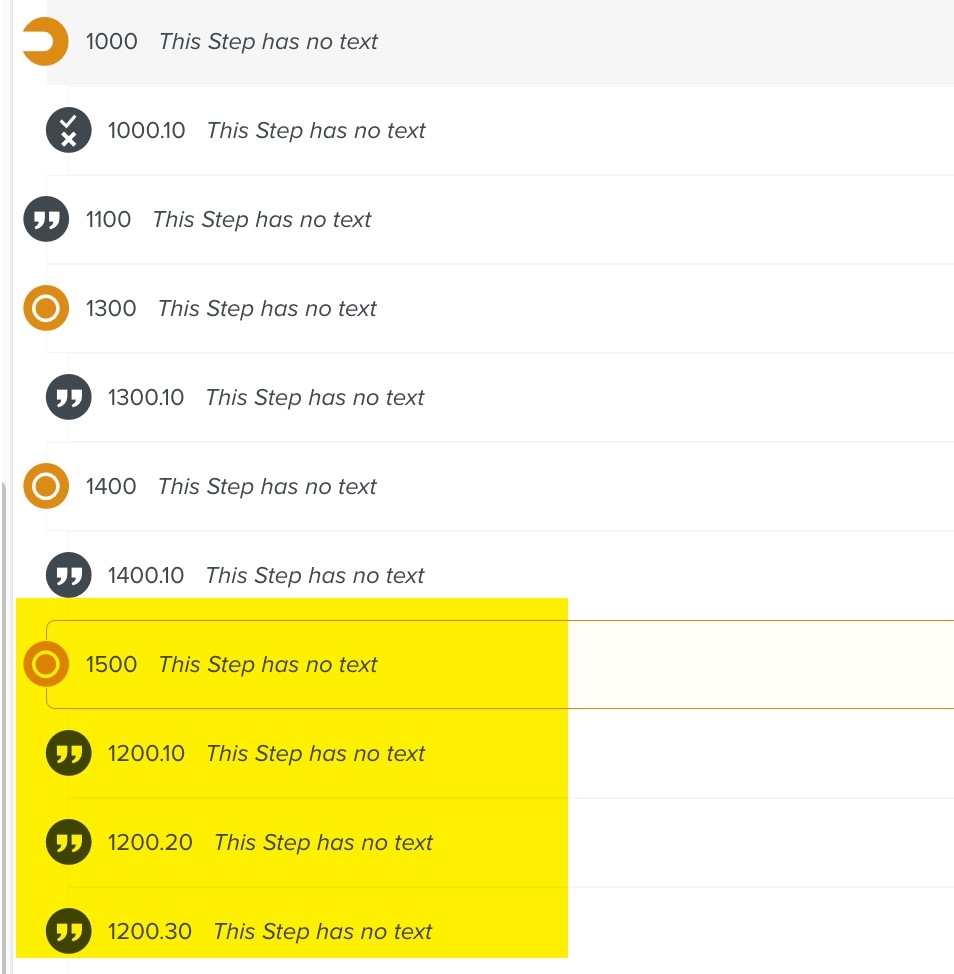Generating Custom Sequence
Using Custom Sequence, the Template Author can specify a sequence different from the sequential Step numbering in a Template. This Custom Sequence is also reflected in the corresponding Task during Execution.
By default, Steps are numbered in increments of 1, starting at 1. A Custom Sequence can be used to identify a set of Steps to be processed differently from the others.
A Step that is part of a custom sequence can be re-ordered if required.
Custom Sequence is a unique value within the Template that is being edited or executed.
Custom Sequence can be generated at Step level. The Step from which the Custom Sequence is applied is referred to as the base Step of the Custom Sequence.
To Generate Custom Sequence:
Click Generate Custom Sequence on the base Step.
In the following example, Step 1 is the base Step.
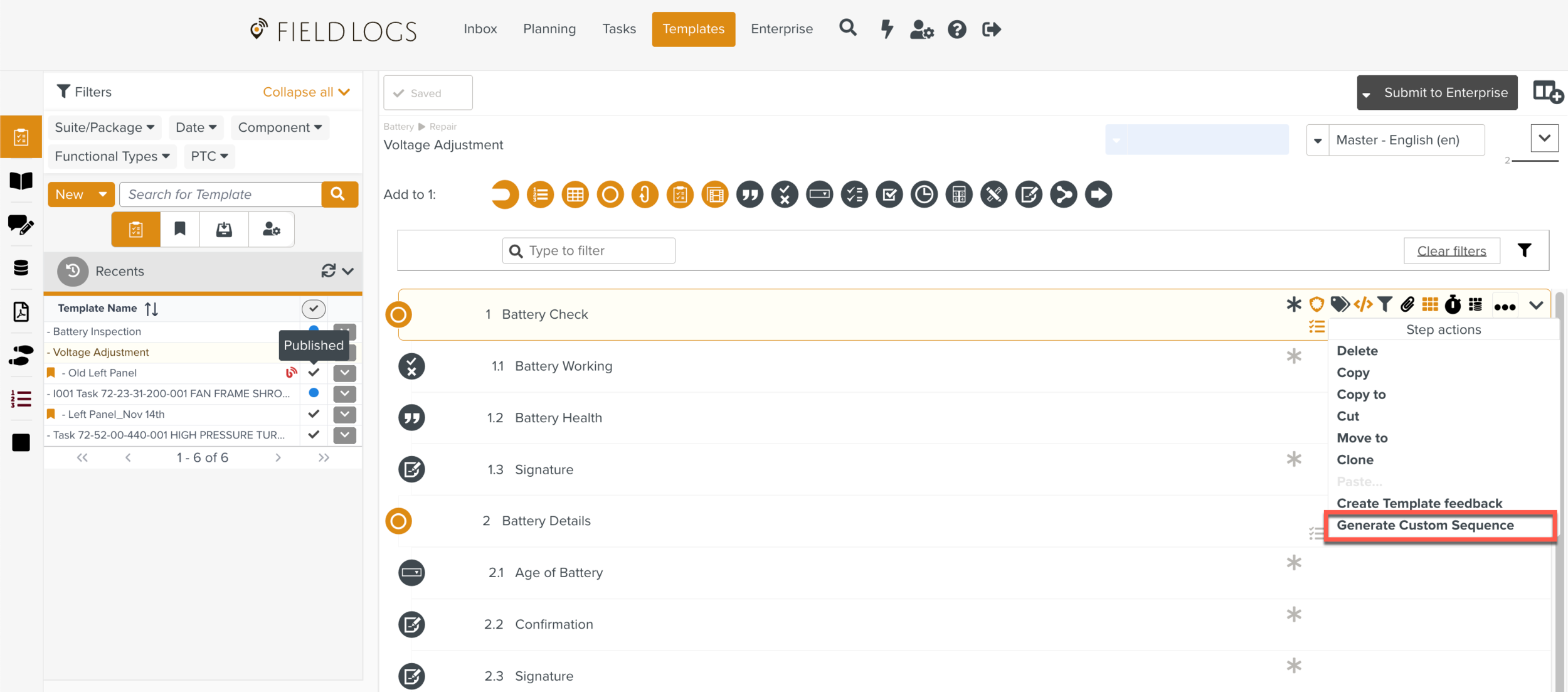
The Generate Custom Sequence dialog opens.
Enter the Step number under Direct siblings to update Parent Steps.
In the example shown below, Custom Sequence starts at 1000 with increments of 100 for each following Step.
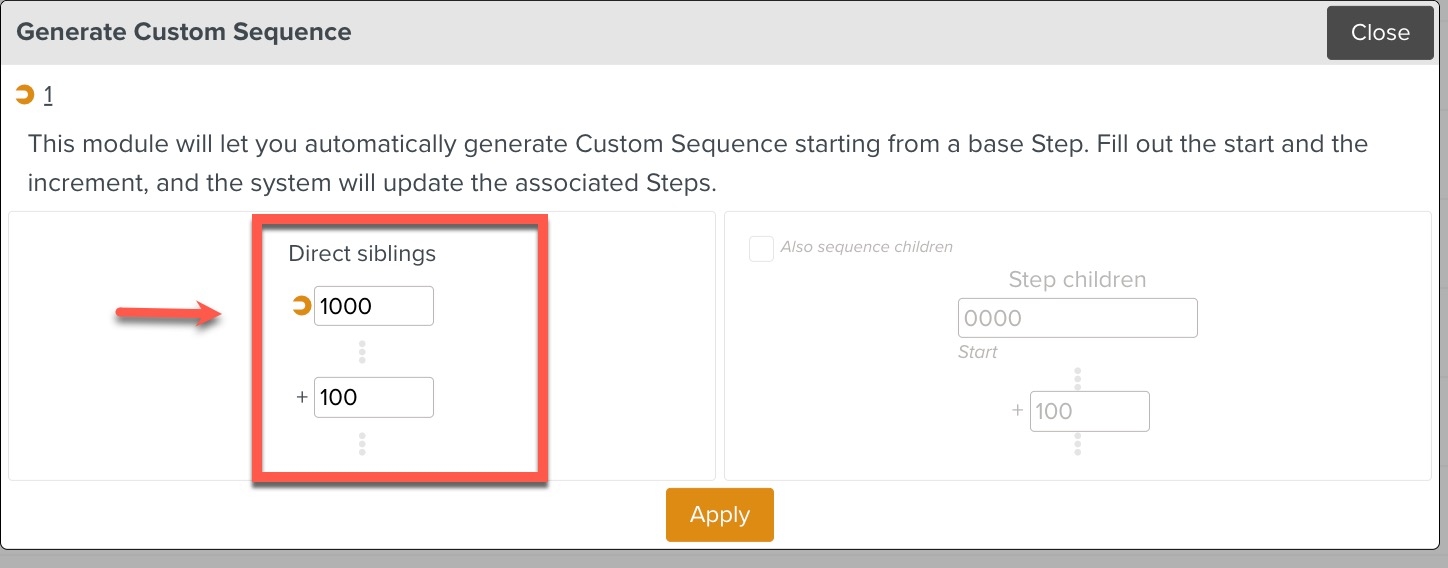
Check the option Also sequence children
 to generate Custom Sequence for child Steps.
to generate Custom Sequence for child Steps.Enter the Step number under Step children to update child Steps.
In the example shown below, Custom Sequence starts at 10 with increments of 10 for each following Step.
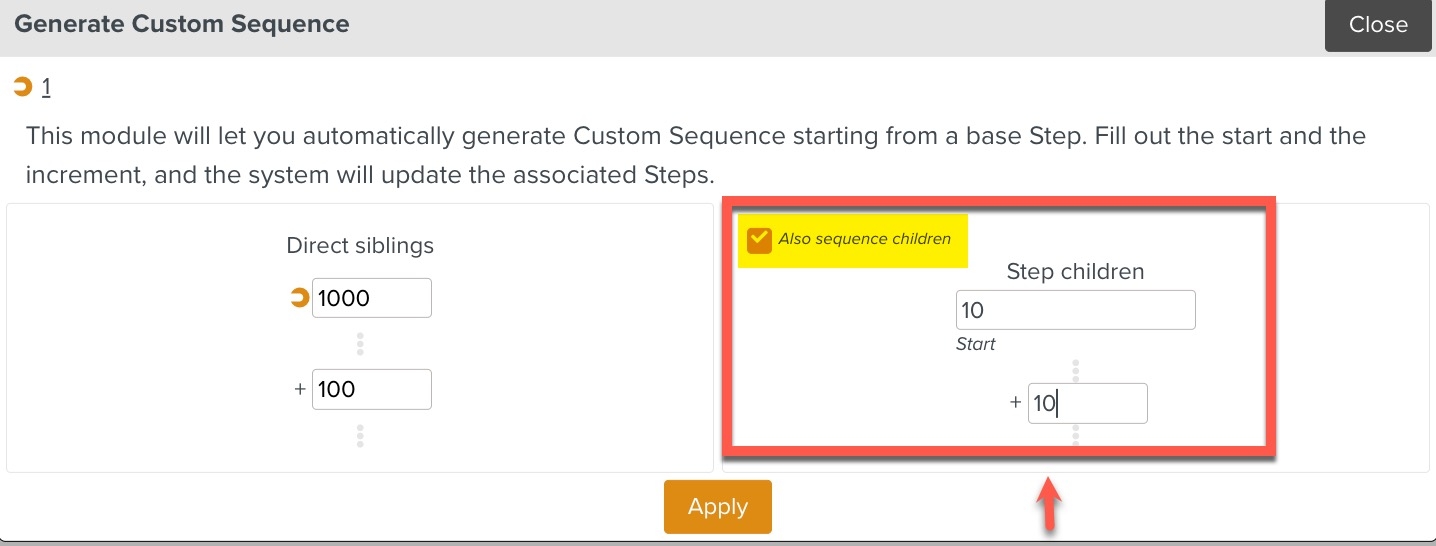
Click Apply.
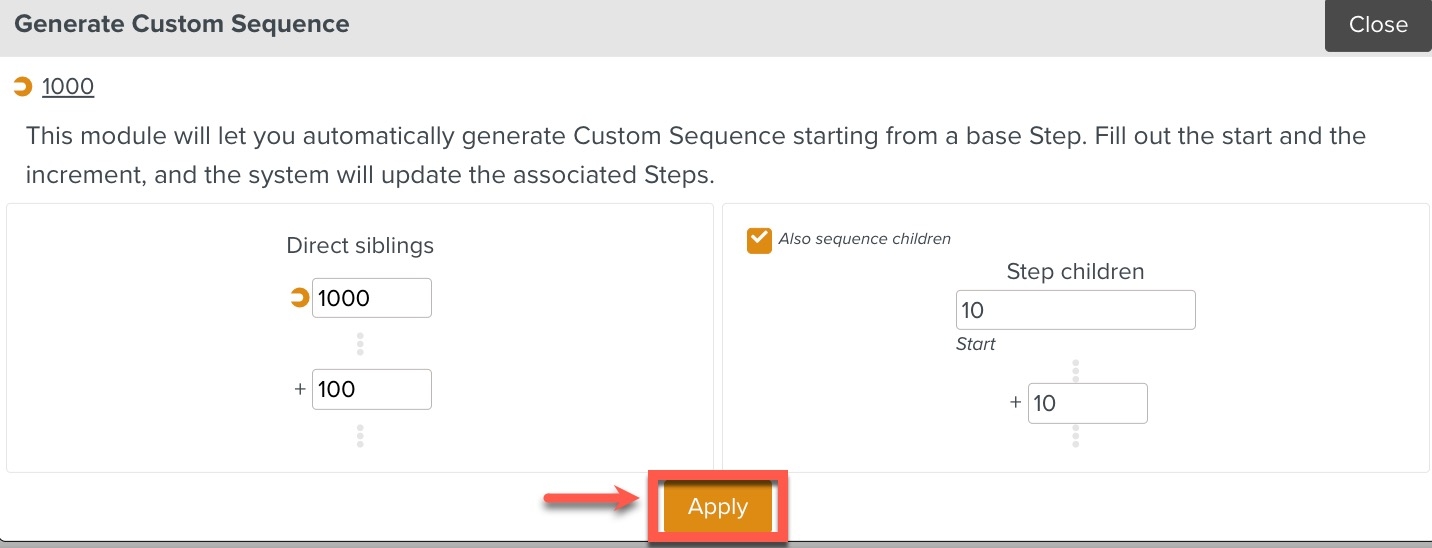
The Custom Sequence is generated for parent and child Steps.
The Step numbers before generating Custom Sequence.
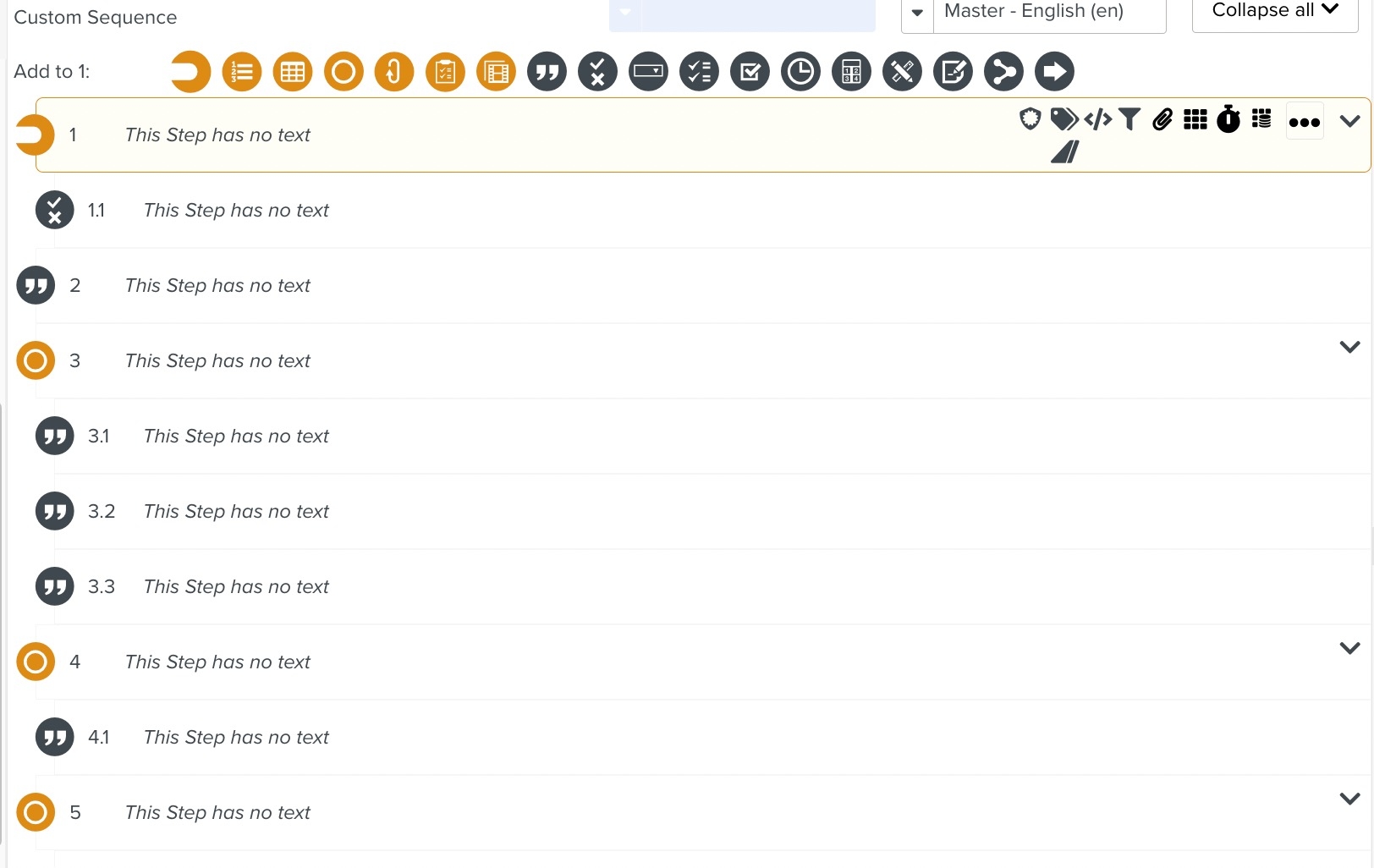
The Step numbers after generating Custom Sequence.
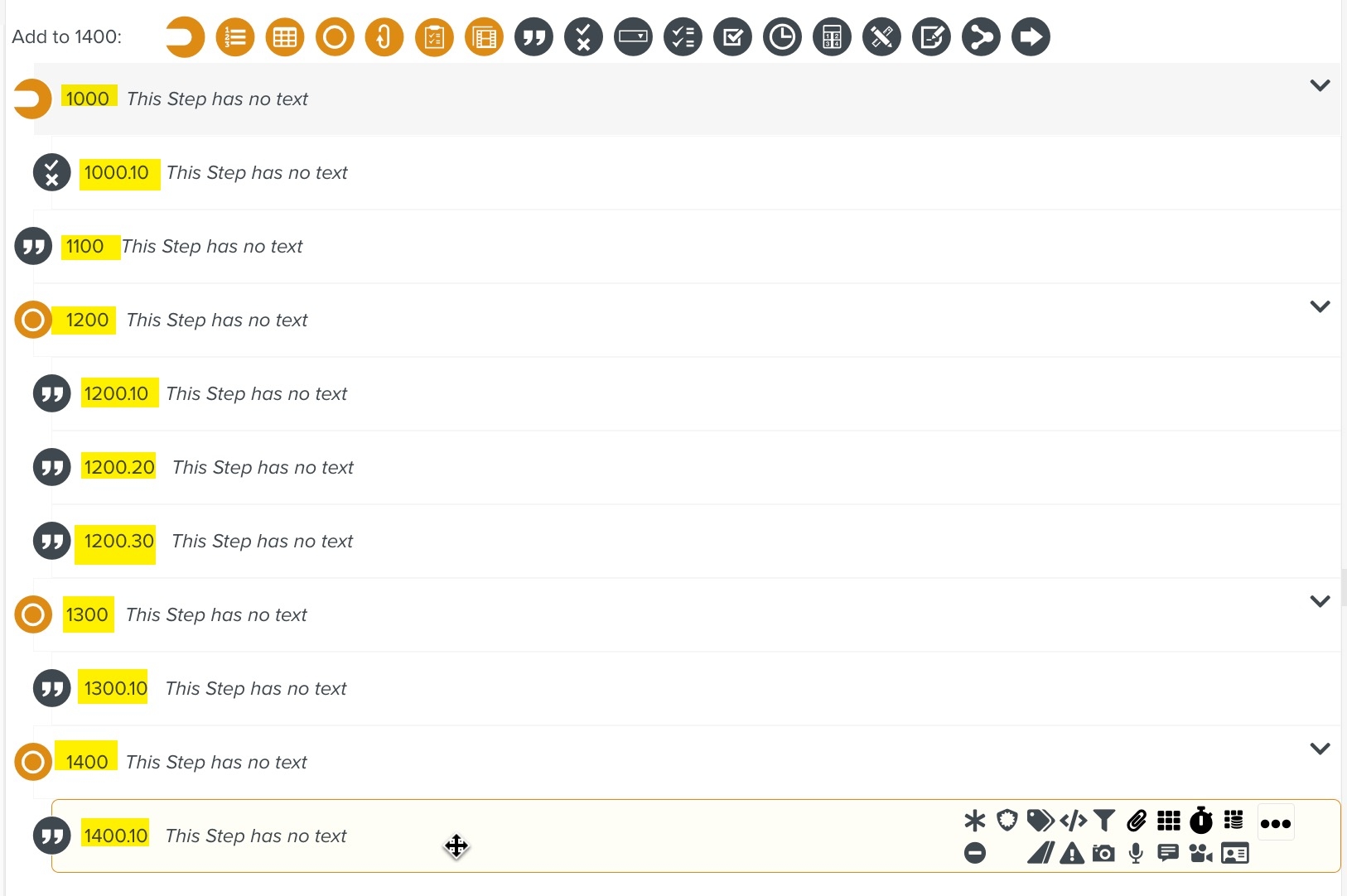
The applied Custom Sequence is reflected on the Task during runtime.
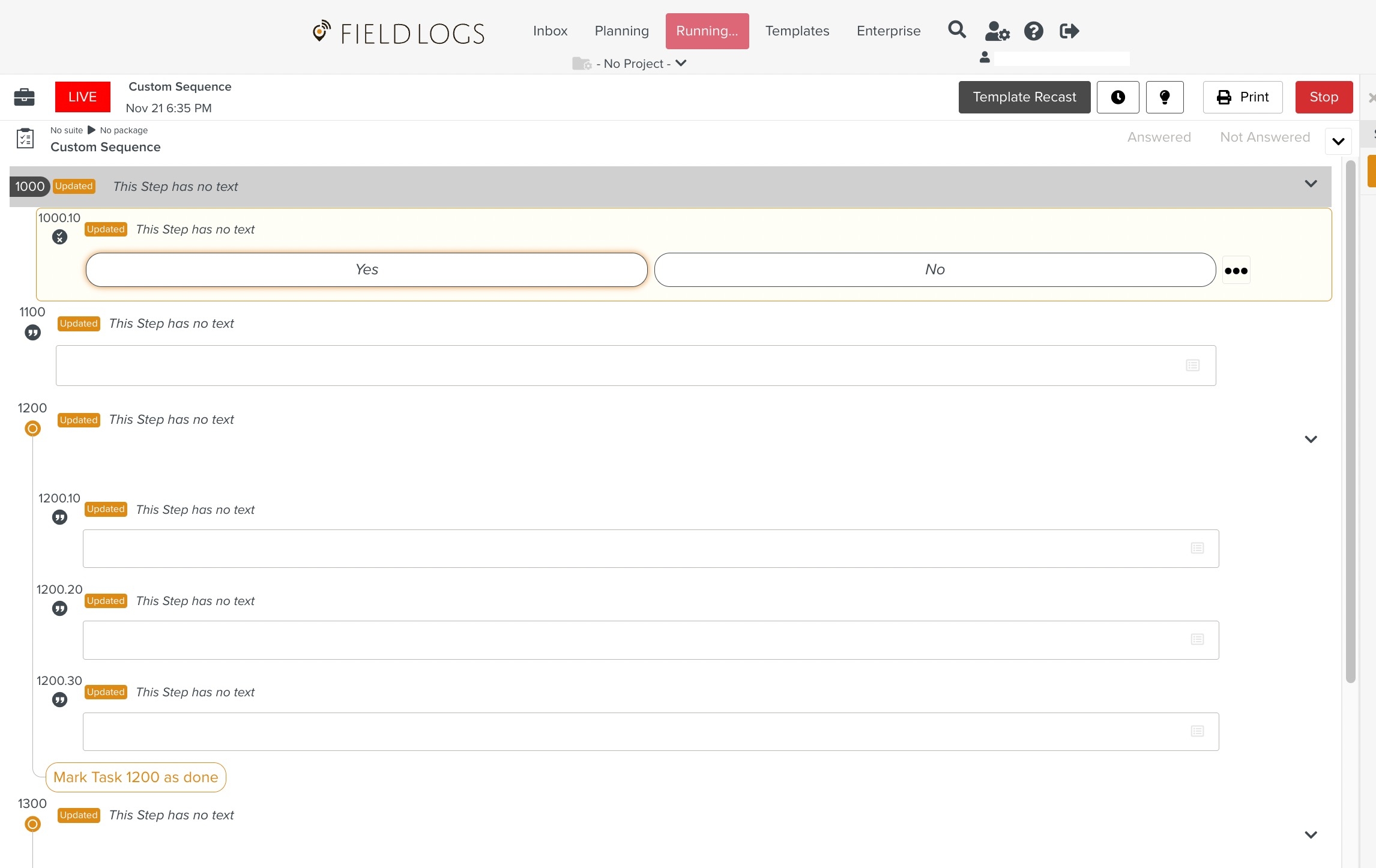
Steps can be rearranged/reordered as needed after the Custom Sequence has been generated. Both parent and child Steps can be reordered.
To Reorder a Step in the Custom Sequence:
Select the Step to be reordered.
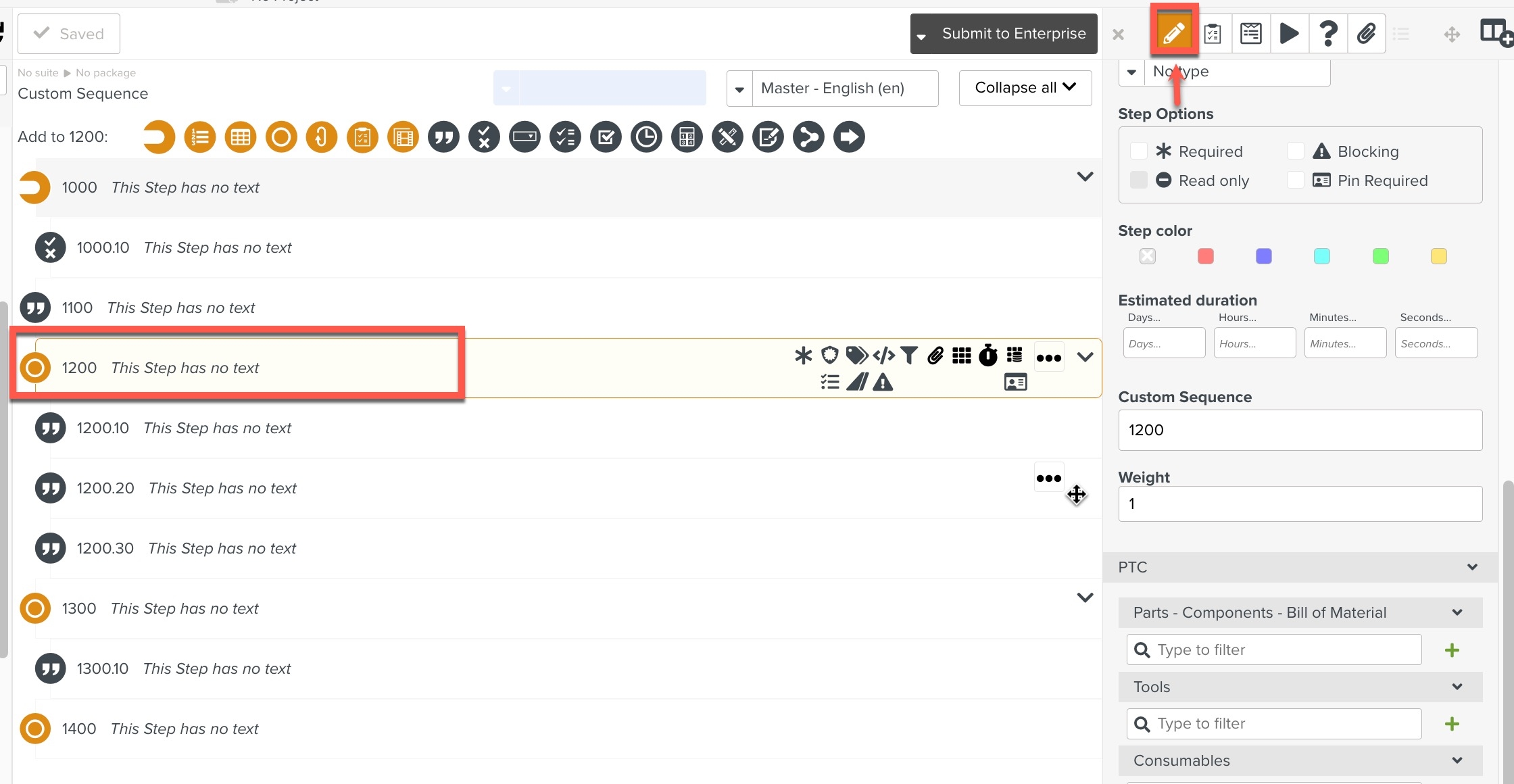
Enter the sequence number in the Custom Sequence field to reorder.
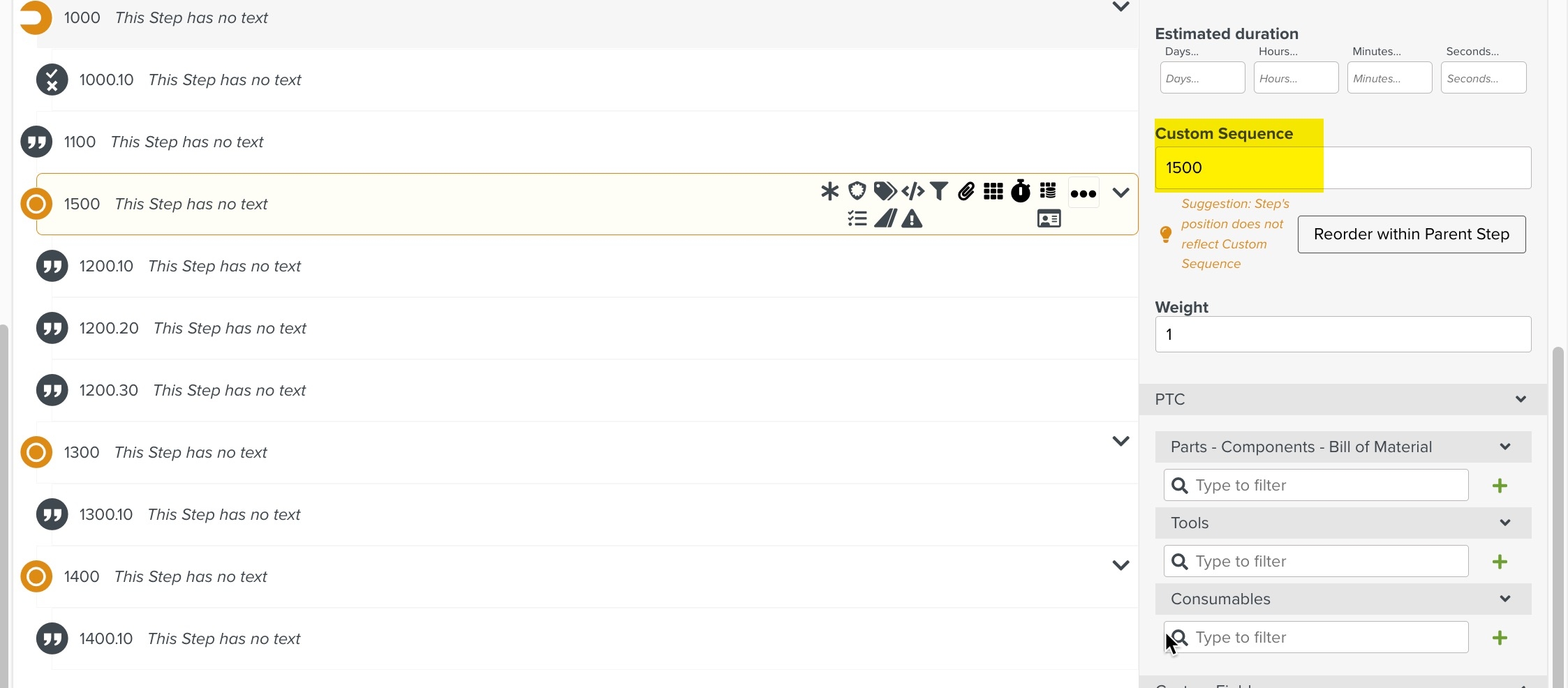
Click Reorder within Parent Step.
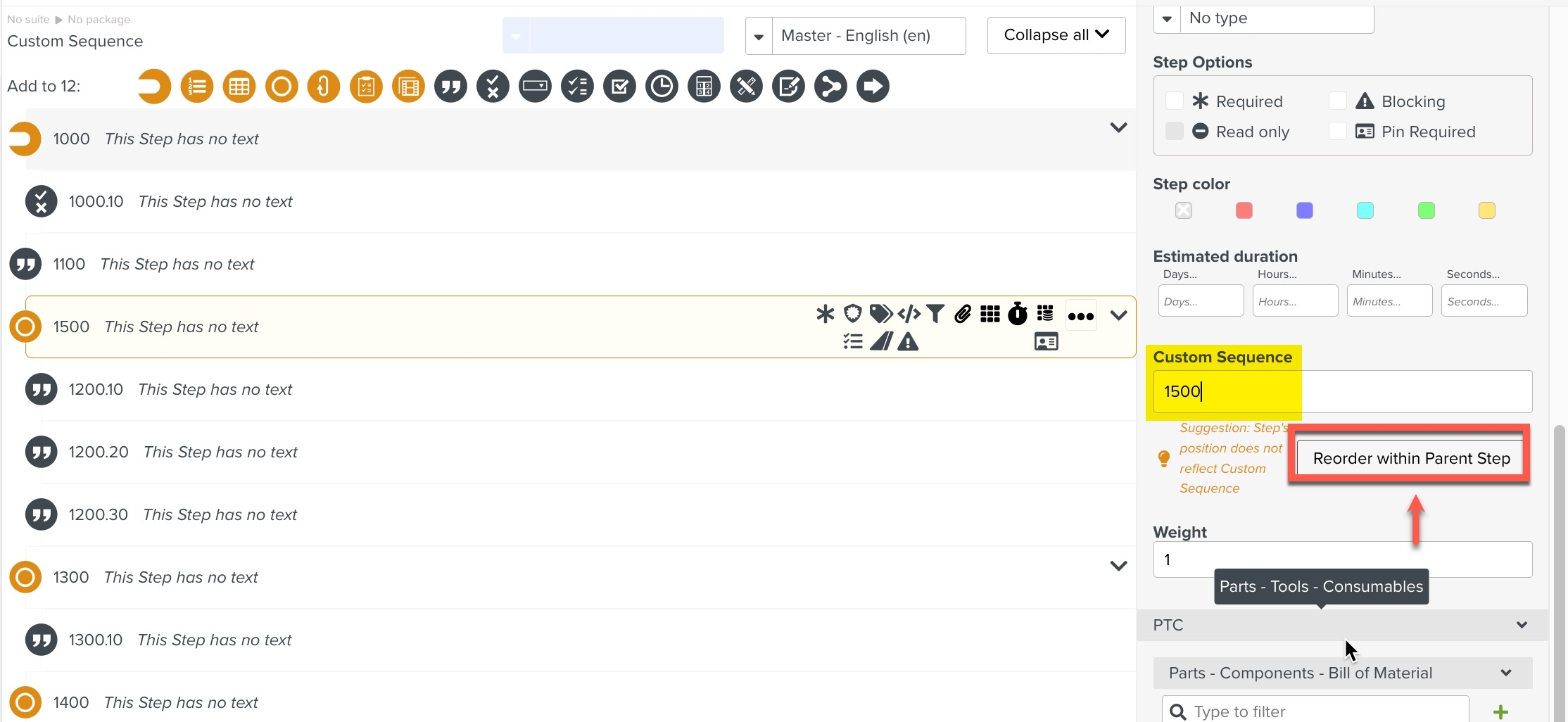
Note
When the Custom Sequence entered is identical, an error message is displayed while saving the Template.
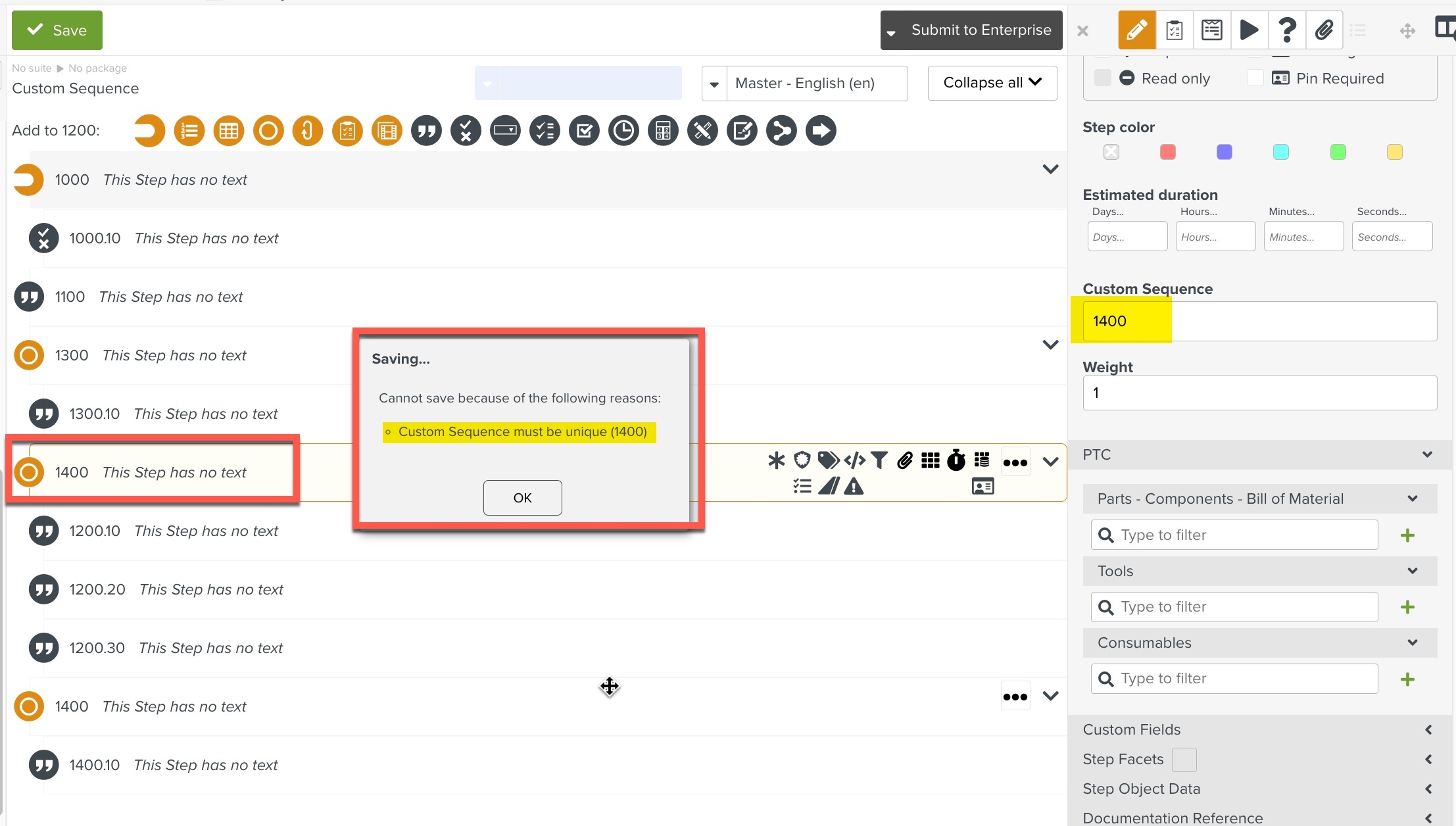
Click Save.
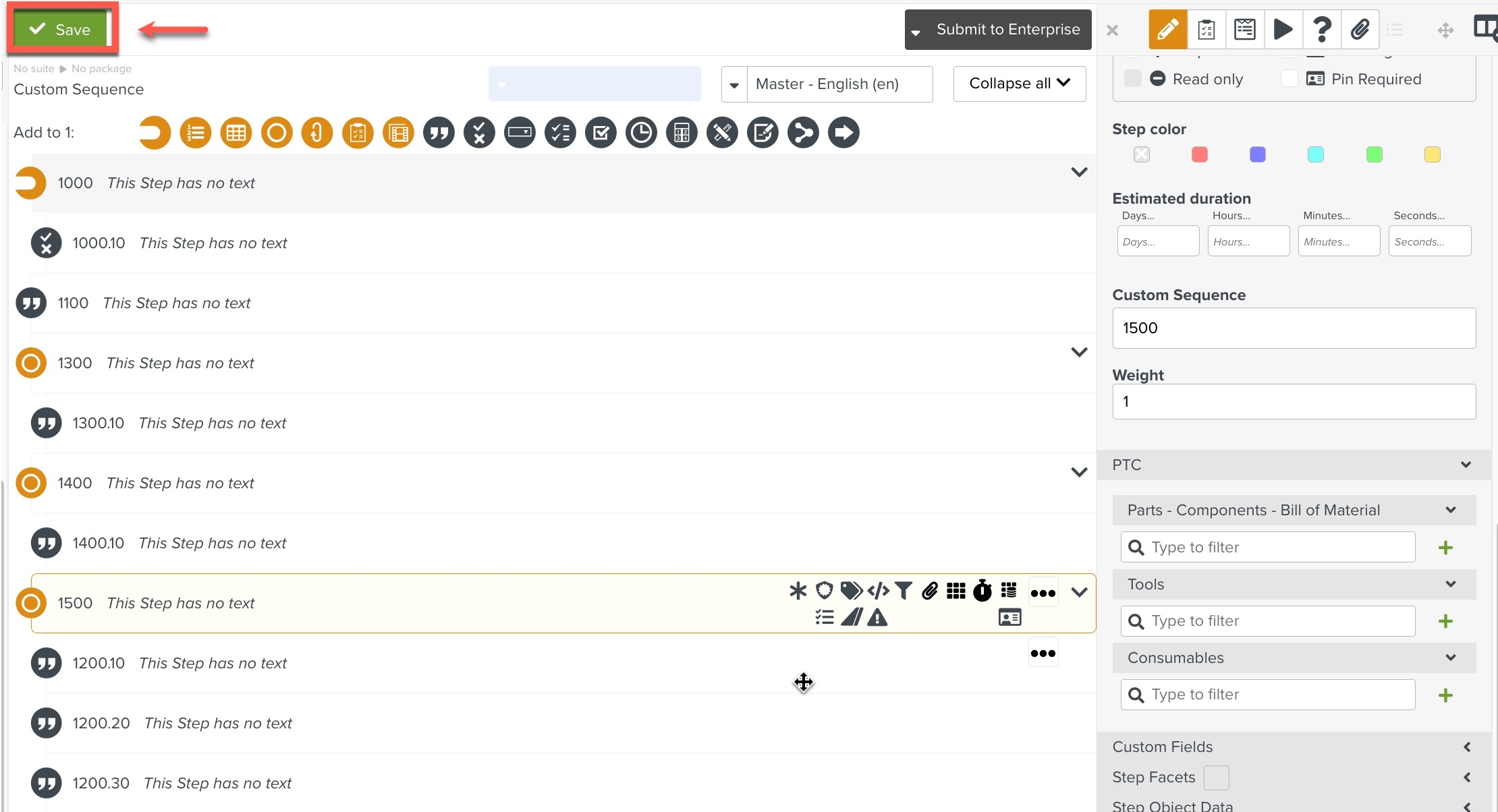
The Steps before and after reordering are shown below.
Before Reorder
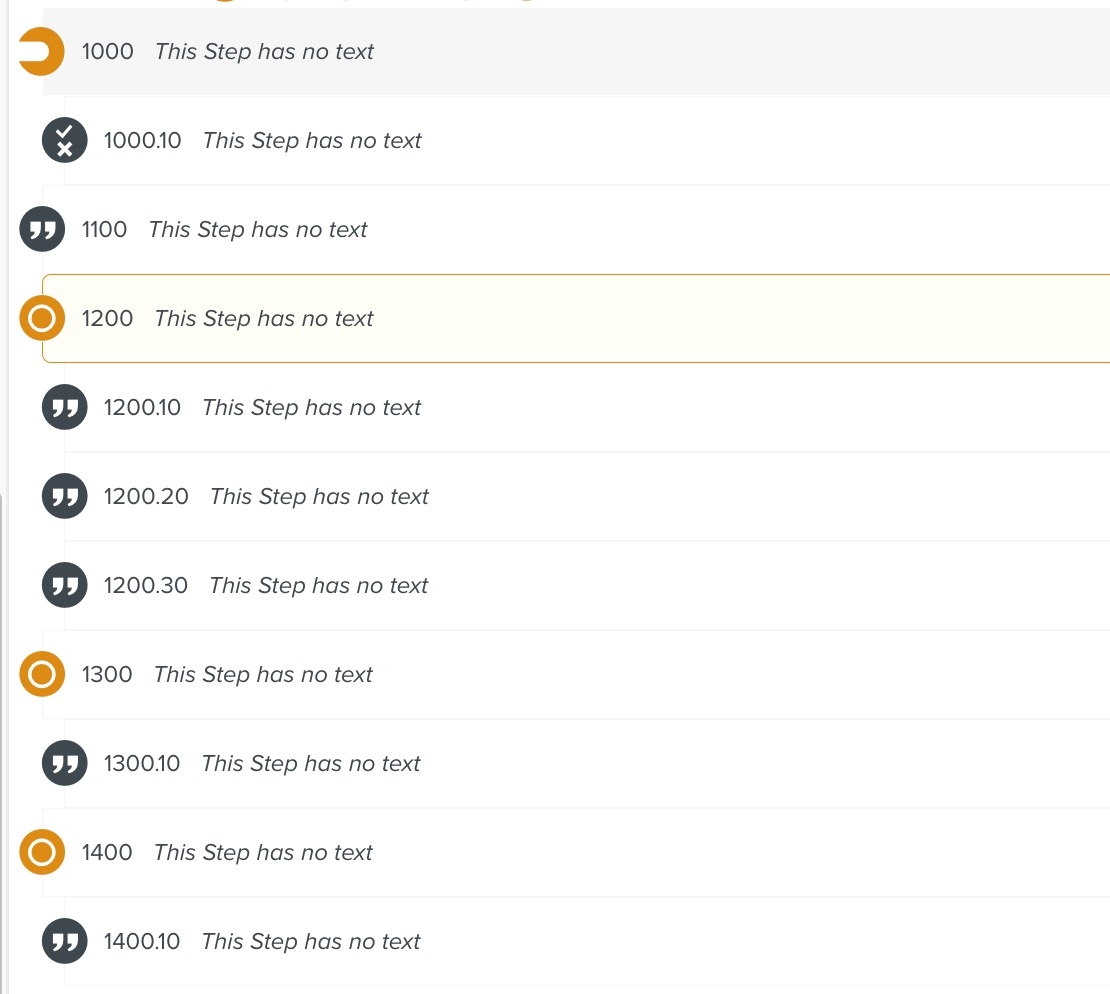
After Reorder
